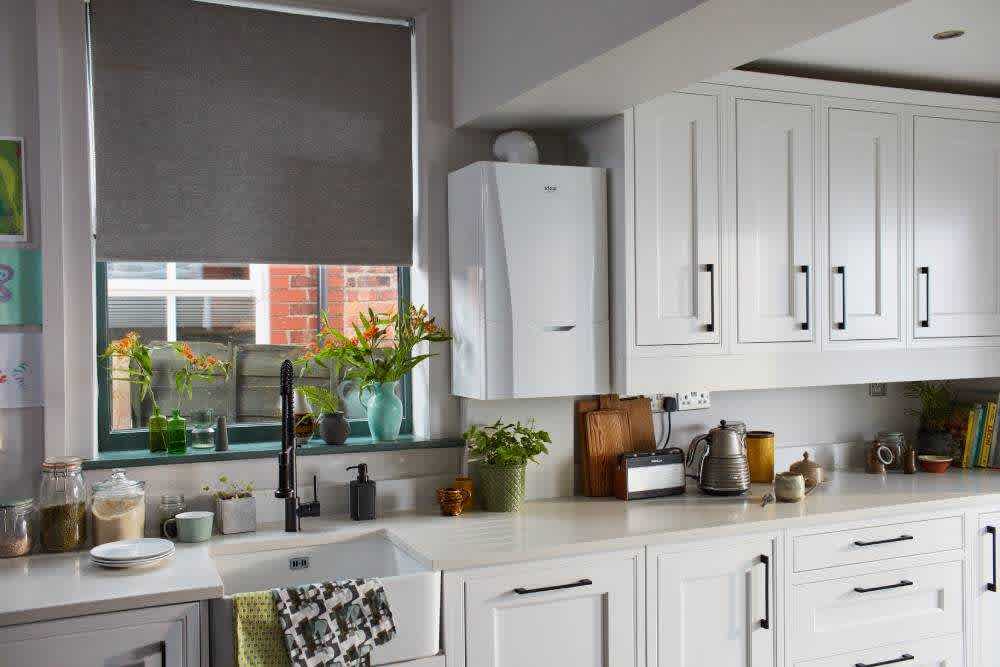
Boiler FAQs: What is an LPG gas boiler?
LPG boilers may be a mystery in many homes, but they provide a vital central heating solution for people across the UK.
For the estimated four million households without access to the gas mains, many based in rural areas, LPG boilers are a great option for keeping their homes warm and comfortable.
In this blog, we’ll answer some common questions about LPG boilers and look at the key benefits offered by these models. If you’re keen to find out whether they are a suitable choice for your home, we’ll help you work out if an LPG boiler is the best option for you.
What is an LPG boiler?
Although they work very similarly to standard gas boilers, LPG boilers are powered by liquid petroleum gas from a storage tank — not the gas mains. When looking for a boiler, you will have the option of a dedicated LPG boiler or a natural gas boiler modified using a conversion kit.
An LPG boiler needs a safe and well maintained storage tank to work properly, which in turn needs to be supplied with LPG to use as fuel. The LPG will then be burned in the boiler, providing heat and hot water to your home.
Can a Combi boiler be an LPG boiler?
Many Combi boilers can be converted to LPG boilers, as well as System and Heat only models. Looking at our Ideal Heating range for example, models such as the Vogue Gen 2 Combi, Logic+ System and Logic+ Heat can all be converted to run as LPG boilers.
Combi boilers are able to provide your home with both central heating and hot water in one handy appliance, providing a great option if you need to save space. All LPG boilers must be installed and serviced by a Gas Safe-registered engineer to keep them running safely and efficiently.
Powering your LPG boiler
Whereas homes that are connected to the gas mains pay a monthly or quarterly gas bill directly to their power supplier, LPG boilers run on gas that is purchased in advance. Because of this, it’s vital to make sure you’re aware of when you need to replace a tank to avoid the risk of being left without fuel.
How to store LPG gas containers
You need to be very careful how you store LPG containers, including standing them in an upright position to avoid leaks. Keep them outside your property at all times, far from entry points to buildings and any sources of heat or ignition. As well as being kept outside your home, they should be stored above ground level in a well-ventilated area.
What are the Benefits of LPG boilers?
If your home isn’t connected to the gas mains, LPG boilers have a great number of benefits. For starters, LPGs have a high density, so you can keep a large amount of this fuel in a relatively small space.
LPG boilers mean you can have a high efficiency model even when you are not connected to the mains. They also produce less carbon emissions than other alternative fuels such as oil, meaning they offer a more environmentally friendly central heating solution. They’re also often quieter than oil-burning boilers while running, too.
Are there any downsides to using LPG boilers?
Unlike boilers that are connected to the gas mains, you will need to keep an eye on how much fuel you have remaining. You may also need a storage tank to keep your fuel — which will be an additional cost — and you’ll also have to find somewhere to site it.
What is the cost of using an LPG boiler?
According to the experts at Which?, average annual costs for heating and hot water using LPG is around £796 in the UK, based on a household using around 12,000 kWh of power over 12 months.
When thinking about the cost of running an LPG boiler, don’t forget to take into consideration factors such as the size of your home, how many rooms and radiators there are, and how many baths and showers it contains.
You’ll find further advice on central heating, servicing and boiler care in our FAQs, as well as more in-depth guides on the Ideal Heating blog.


















